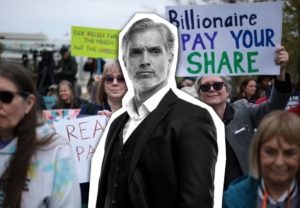As consumers balance the consequences of inflation against purchases of more expensive things like home entertainment systems, Best Buy Co.’s stock dropped 8% on Thursday after the electronics retailer reduced its full-year profit outlook due to the impact of tariffs.
Although it’s too early to consider any potential modifications to the present tariff regime, the corporation said that it is aware of an attempt by a panel of judges to prohibit part of the duties imposed by President Donald Trump.
“It’s an incredibly fluid situation,” Corie Barry, the CEO of Best Buy, stated during an investor call.
Best Buy (BBY) previously projected adjusted fiscal 2026 earnings of $6.20 per share to $6.60 per share, but now projects adjusted earnings of $6.15 to $6.30 per share, including the impact of tariffs as they stand.
Based on data from FactSet, analysts currently predict that Best Buy will make $6.13 per share.
Although Wall Street analysts have projected break-even same-store sales, the business anticipates full-year same-store sales to either decline by up to 1% or increase by up to 1%.
“We have been actively employing many tactics in partnership with our vendors as we navigate the dynamic situation and work to mitigate the impacts of tariffs on our customers and business,” Barry stated.
With “no material change in consumer behavior from the trends we have seen in recent quarters,” Barry stated that the company’s forecasts are predicated on tariffs being at their present levels for the remainder of the year.
They are “value-focused and thoughtful about big-ticket purchases,” she said, because consumers are still “resilient” in the face of inflation.
Best Buy reported that same-store sales decreased 0.7% from the prior year for the fiscal first quarter ending May 3, exceeding the analyst’s prediction of a 0.4% decline.
The Minneapolis-based company claimed that while same-store sales were driven by growth in computing, smartphones, and tablets, drone and home theater equipment sales were down.
Michael Baker, an analyst at D.A. Davidson, reaffirmed his buy recommendation for Best Buy’s stock, stating that he had anticipated a 0.5% increase in same-store sales for the quarter rather than the 0.7% decline that the company announced.
He claimed that “the market was looking for a comp beat, which magnifies the slight miss” on at-store sales.
While adjusted earnings per share of $1.15 were lower than $1.20 last year but still exceeded analysts’ estimates of $1.09 per share, Best Buy’s first-quarter net income fell 17.9% to $202 million.
Revenue missed the FactSet average expectation of $8.81 billion, falling to $8.77 billion from $8.85 billion in the same quarter last year.
According to the corporation, it currently sources between 30 and 35 percent of its goods from China, compared to 55 percent the previous year. About 25% come from the United States and Mexico, while 40% come from other nations like Taiwan, South Korea, India, and Vietnam.
Best Buy’s stock is among the S&P 500’s worst-performing stocks for the day after dropping 8% on Thursday.
According to FactSet statistics, it’s the biggest one-day drop the stock has experienced since it dropped 8.3% on April 8.
With Thursday’s actions included, Best Buy’s stock has down 23.2% in 2025, compared to 0.4% gains for the S&P 500 SPX and roughly 4.7% declines for the SPDR S&P Retail exchange-traded fund XRT.





